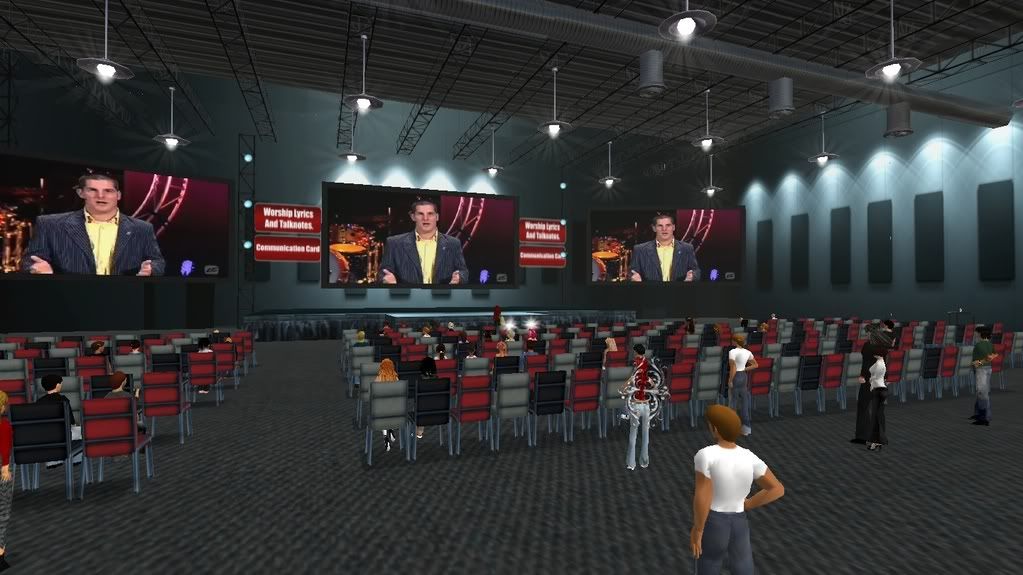My family has long been involved in public education, and in recent years there has been a push to "use technology" in the classroom. This thinking misses the mark when it comes to connecting to students. Students don't think in terms of "using technology," they just use it. It's part of the language they speak. So "using technology" does not typically produce a wow factor; it's just expected.
Technology is no longer optional; and simply having a website doesn't cut it anymore. You have to connect with people where they are. Connect with people via podcast, MySpace, Facebook, and Twitter. To not have these things in the 21st century is like a church not having a phone in the 20th century. It's a must.
Use text-messaging to connect people to the service and to the staff. Ross Sawyers at 121 Community Church gave out his personal phone number for people to text if they wanted to talk about what it means to trust Christ.
Technology should be a big part of the services. Going digital costs money, but the things mentioned above do not. Also, going to church Online is gaining a lot of attention these days.
We are now 67 days away from the nation-wide switch from analog to digital television. In response people have purchased converter boxes or have gone ahead and made the plunge into the world of HD television.
On February 17, 2009 the television airwaves go digital and many churches become obsolete. No longer will the overhead-projection-on-a-bedsheet or flannel-board methods be sufficient.
When my home church, Waxahachie Bible Church, built a new sanctuary in 2002, they included widescreen projection screens because the worship pastor, Jay Trull, saw where digital technology was headed. They have not made the conversion to HD yet, but the infrastructure is in place for them to do so when it becomes financially possible. Bent Tree Bible Fellowship completed their new facilities this fall and have gone full HD in their services and so have several other churches we have visited.
Certainly finances are a consideration in this discussion, but embracing technology does not have to be cost-prohibitive. The web is full of free resources to connect people within your church and to introduce new people to your church. Making technology a priority will speak volumes to people who are visiting because it will be communication that is on their terms, using their terminology, so their condition isn't terminal.
What are some ways you are utilizing technology to connect with people? What are some ways that you would like to do so, but haven't yet?
 As a north-Texas native, I have been blessed to live in an area that is known for three things:
As a north-Texas native, I have been blessed to live in an area that is known for three things:








 The basic idea is that a youth ministry should fit in with the other ministries working with People Group A. So, a mission agency that primarily focuses on, say, church plantning, should work strategically with the other ministries already working with that group so the church plants fit in with the other established ministries.
The basic idea is that a youth ministry should fit in with the other ministries working with People Group A. So, a mission agency that primarily focuses on, say, church plantning, should work strategically with the other ministries already working with that group so the church plants fit in with the other established ministries.